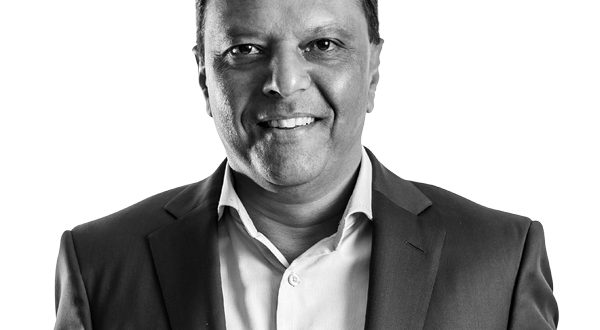By FNB Retail CEO Raj Makanjee
All indications are that financial services will be characterised by unprecedented competition in the 21st century. In addition to the already fierce competition among banks, the industry is attracting the attention of telecommunications providers, fintechs and technology players. Several arguments are advanced in support of the potential of new market entrants, including the assumption that new players are “capital-light” and thus better positioned for success.
The opposite argument in favour of incumbents is that large financial institutions have substantial balance sheets and strong capital positions. Some argue that established banks have built trust with their customers over time. Regardless of these contentions, it is clear that in order to thrive in this highly competitive market, all financial services providers will need unprecedented levels of agility.
The ability of each institution to leverage data and integrate multiple components into a superior contextual offering will be critical to success.
FNB envisions itself evolving from a bank to a fully integrated and client-centric financial services provider. Our ambition will be made possible by our platform strategy, accomplished data and digital capabilities. Ultimately, we will evaluate our efforts based on our ability to meet our clients’ diverse financial and lifestyle needs. As a result, we do not consider ourselves to be a transaction-driven institution, as we are making significant strides to be relevant across lending, investments and insurance.
The evolution of banking will be realised through data access for responsible use rather than open banking.
We are steadfast in ensuring that clients can achieve a higher level of comfort and trust in our platform, as is typically the case with platform-based businesses that are more concerned with solving clients’ problems, and this allows us to add value by giving them more reasons to interact with our solutions. In line with our ability to innovate, there are already key benchmarks where we outperform industry peers. These include our platform interactions and solutions on a large scale, the network effect in our ecosystem, a strong and trusted brand, and proprietary technologies.
The shift to a platform operating model leverages
and integrates shared capabilities across our group’s franchises. This will allow us to support our retail and commercial clients effectively regardless of the territory or interface through which they access our assisted or unassisted services. In practice, our integrated offering will make use of shared data centres, network infrastructure, security architecture and technologies.
#The role of people
One of the most common misconceptions about platform strategies is that they minimise the importance of human resources.
In contrast, a platform strategy enables organisations such as ours to increase efficiency and modernise the contribution of human resources. For example, modern technology is extremely effective at processing massive amounts of data in seconds, which is impossible for a human to do.
People, on the other hand, have the mental fortitude and emotional intelligence to make sound or judgmental decisions in areas such as credit, insurance, investments and fraud risk. Irrespective of the respective roles that people and technology play, we are committed to ensuring that all interactions are facilitated through a single digital platform. The client experience should be seamless, whether you visit a branch, call the contact centre or use our app.
Technology is not only a strategy enabler, it is also a facilitator of alternative business models. The rapid expansion of our lifestyle enablement services, such as nav» Car, with over 700 000 vehicles registered in our virtual garage, demonstrates this. We not only help clients keep track of their vehicle maintenance, but they can also renew licence discs, pay traffic fines, and buy or sell a vehicle to trusted potential buyers without the usual hassles.
Payments have arguably been the focal point of financial services competition for the longest time, owing to the ease with which new entrants such as fintech and telecoms operators can enter the market.
Technology is not only a strategy enabler, it is also a facilitator of alternative business models
Overall, we believe that the key to a competitive landscape is a balance between the regulatory responsibilities assigned to banks and those assigned to telecoms operators, big tech companies and other financial services providers. For example, if financial institutions had access to telecoms operator data, especially in the entry market, they would be able to create more contextual financing and credit solutions for clients more efficiently.
The evolution of banking will be realised through data access for responsible use rather than open banking. More importantly, market participants must accept the responsibility of collectively combating the scourge of cybercrime in order to protect clients and service providers.
These efforts are critical for fostering trust in financial systems and will aid efforts to assist clients in migrating to safer and more efficient platforms for managing their financial affairs.
Raj Makanjee is CEO of FNB Retail
 Business Remarks ICT News in Nigeria, Latest News in Nigeria, Latest Business News in Nigeria, Latest Nigerian News, Technology News in Nigeria, Latest Tech News in Nigeria, Nigeria Business News, Top Nigerian Newspapers, Breaking news in Nigeria, Top News Headlines From Nigeria, Opinions and Metro News in Nigeria, Nigerian News, Trending Events in Nigeria, Daily News in Nigeria
Business Remarks ICT News in Nigeria, Latest News in Nigeria, Latest Business News in Nigeria, Latest Nigerian News, Technology News in Nigeria, Latest Tech News in Nigeria, Nigeria Business News, Top Nigerian Newspapers, Breaking news in Nigeria, Top News Headlines From Nigeria, Opinions and Metro News in Nigeria, Nigerian News, Trending Events in Nigeria, Daily News in Nigeria








